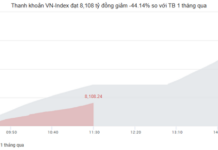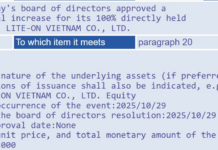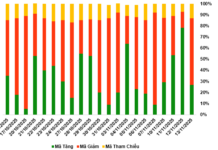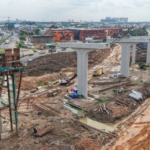
Delegates participating in the launch ceremony of the Real Estate Specialized Page.
On the morning of September 26th, the Construction Newspaper hosted the launch of the Real Estate Specialized Page and the forum “Real Estate Market Development – A Double-Digit GDP Growth Catalyst.”
Speaking at the launch ceremony, Deputy Minister of Construction Nguyen Van Sinh emphasized that in recent years, the real estate market has made significant contributions to the economy, creating a ripple effect across various sectors. Real estate not only attracts resources for social infrastructure and construction projects but also generates substantial fixed assets and meets the housing needs of the population.
According to the Deputy Minister, the market has begun to show positive signs of recovery. However, challenges remain, particularly the lack of synchronization in the legal system, unbalanced supply, and difficulties in accessing capital for businesses.
In a volatile market where public opinion is easily swayed by conflicting information, Deputy Minister Sinh highlighted the critical role of the Construction Newspaper in providing authoritative and transparent information.
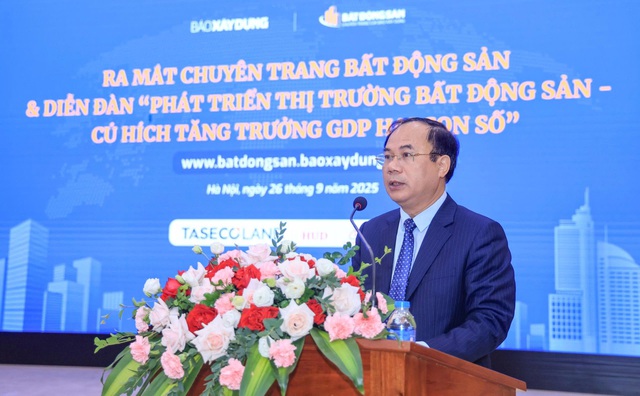
Deputy Minister of Construction Nguyen Van Sinh delivering a keynote speech at the launch ceremony.
At the forum, experts, leaders of regulatory bodies, and businesses collectively acknowledged the vital role of real estate in the economy. They also candidly identified the bottlenecks that need to be addressed for the market to develop stably and sustainably.
From a macroeconomic perspective, Prof. Dr. Tran Dinh Thien, a member of the Prime Minister’s Advisory Group and former Director of the Vietnam Institute of Economics, stressed the need to clearly define market structures to unblock core bottlenecks.
“Many projects remain stalled due to legal procedural bottlenecks—this is the bottleneck of bottlenecks. Resolving this issue decisively will be a breakthrough in a market still fraught with anomalies,” said Mr. Thien.
He also pointed out the distorted market structure, which has shifted toward speculative trading and group-interest management. Meanwhile, the need to amend numerous critical laws has made market stabilization difficult.
Mr. Thien suggested a thorough analysis to assess the suitability of the 2023 Real Estate Business Law, the amended Land Law, and the operational mechanisms within the new two-tier government model, which still face many jurisdictional issues in project resolution.
“All stakeholders must take bold and decisive action, starting with stalled projects, adopting a different approach to break down existing barriers. Without this, the goal of recovering and developing the real estate market will be hard to achieve in the current unpredictable environment,” Mr. Thien emphasized.
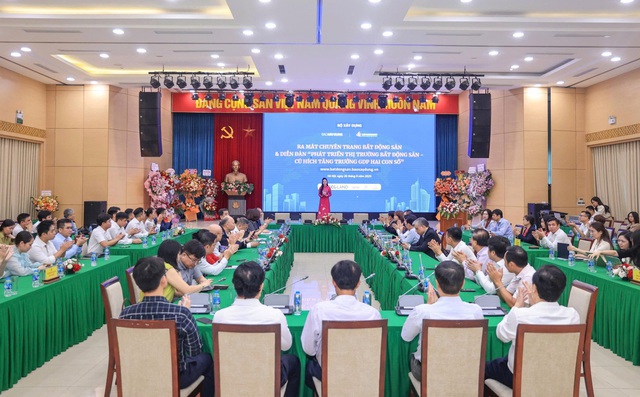
Overview of the launch ceremony.
From a regulatory standpoint, Ms. Tong Thi Hanh, Director of the Housing and Real Estate Market Management Department, underscored the current priority of developing a legally compliant supply, linked to the refinement of legal frameworks in construction, land, investment, and finance.
“The key to unlocking the current situation lies in institutional reform. We must identify and address specific bottlenecks. Once these are cleared, the real estate market will undoubtedly grow positively,” said Ms. Hanh.
According to Ms. Hanh, researching and implementing breakthrough, flexible mechanisms to attract social resources is also crucial. This will enhance market transparency, reduce risks, and promote sustainable development.
Experts agree that for real estate to truly become a growth catalyst, alongside corporate efforts, the government’s role in perfecting mechanisms, policies, and providing appropriate support is essential. By addressing legal, capital, and infrastructure bottlenecks, the real estate market will not only recover robustly but also contribute to achieving high and sustainable economic growth in the coming years.
From a business perspective, Mr. Nguyen Xuan Binh, Deputy General Director of Cienco 5 Land, noted that the timely issuance of Resolution 68 has bolstered investor confidence, encouraging more capital investment in project development.
Notably, the new regulations emphasize the principle of not criminalizing economic and civil relations. Errors or violations that can be rectified through administrative or economic measures should be handled accordingly, with only severe cases proceeding to criminal prosecution.
“This provision reassures investors, as businesses often need to take risks and move forward during project implementation,” shared Mr. Binh.
Additionally, Resolution 68 reaffirms the private sector as a key driver of the economy. This not only motivates businesses but also encourages greater public participation in economic activities.
Deputy Prime Minister: Implementing Practical Housing Rental Policies
According to Deputy Prime Minister Tran Hong Ha, access to housing for workers remains a significant challenge. Therefore, implementing a rental housing policy is both practical and aligned with current realities.
Saving for 25 Years, Yet the Dream of Homeownership Remains Elusive Due to Skyrocketing Prices
Soaring home prices are eroding the dream of homeownership for millions of hardworking individuals, particularly young families, forcing them into an uneven race against the escalating cost of real estate.





